national security
Due to the age of publications, certain works listed are no longer in print. Print-on-demand services are available for some titles upon request.
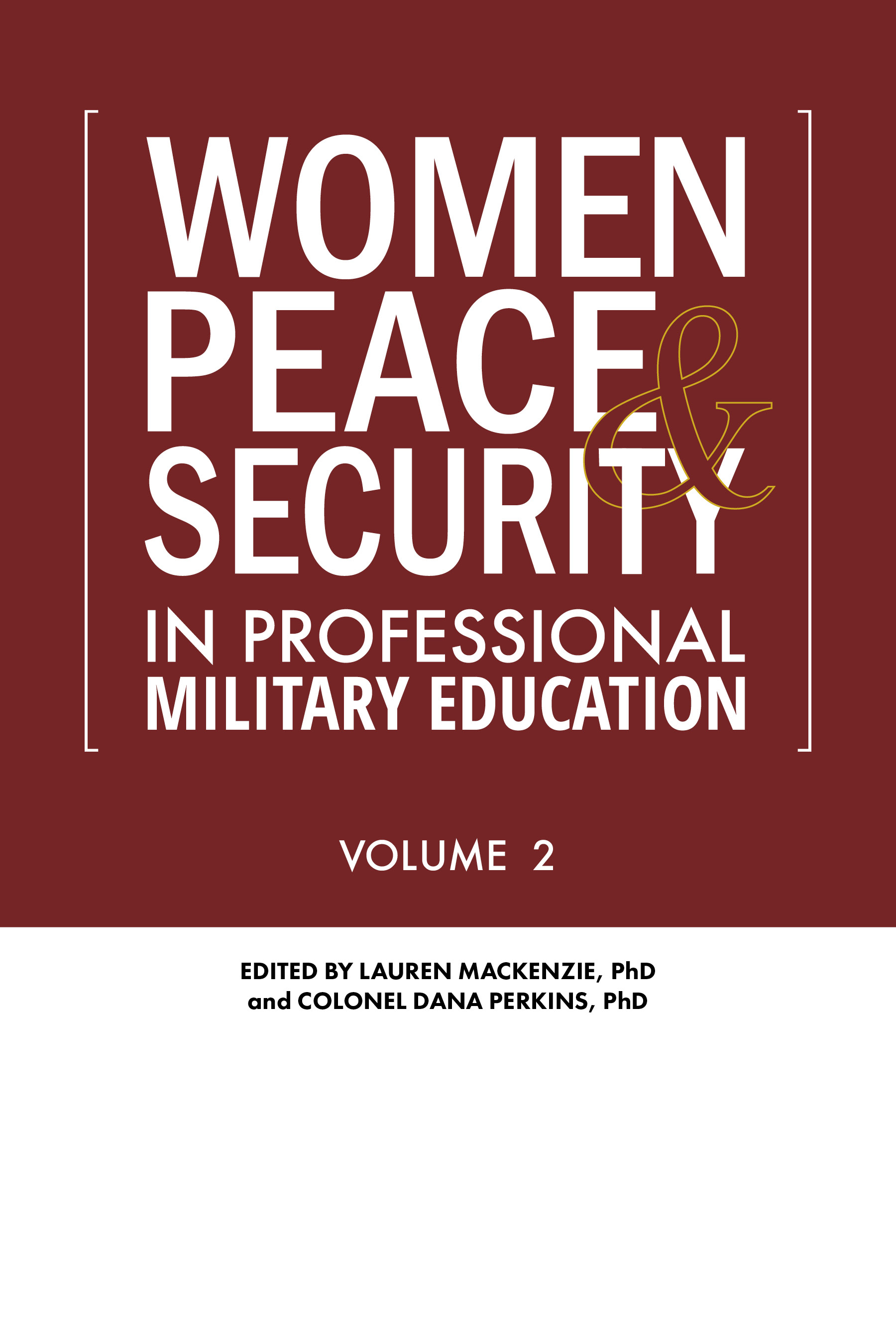
Women, Peace, and Security in Professional Military Education, vol. 2
Edited by Lauren Mackenzie and Col Dana Perkins
The Women, Peace, and Security (WPS) Agenda is a global framework and policy tool that guides national actions addressing gender inequalities and the drivers of conflict and its impact on women and girls. By fostering structural and institutional change, the WPS agenda aims to 1) prevent conflict and all forms of violence against women and girls and 2) ensure the inclusion and participation of women in peace and security decision-making processes to incorporate their specific needs in relief and recovery situations. This volume gathers student papers from the Joint Women, Peace, and Security Academic Forum’s 2022–23 WPS in PME Writing Award program, a best-of selection of informative and empowering work that intersects with Department of Defense equities supporting global WPS principles. Student participants in the Joint WPS Academic Forum hail from prestigious DOD academic institutions, and this monograph shows how the strategic leaders of tomorrow embrace WPS today, offering a strong indication of how WPS principles will be implemented over time and how they will influence the paradigm of peace and security and our approaches to conflict prevention and resolution.
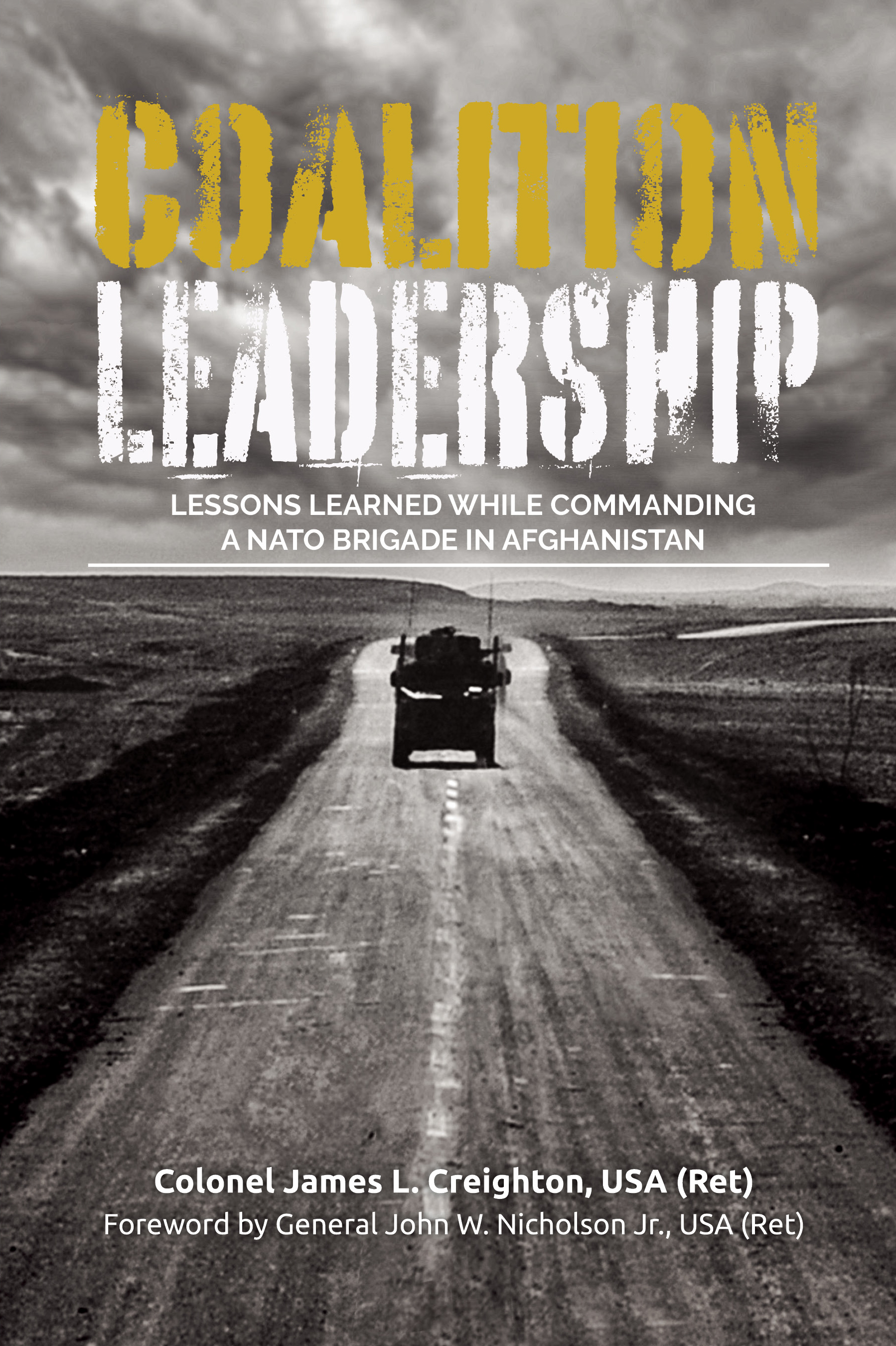 Coalition Leadership
Coalition Leadership
Lessons Learned while Commanding a NATO Brigade in Afghanistan
By Colonel James L. Creighton, USA (Ret)
Colonel Creighton’s command provides an excellent case study in the leadership of coalitions, which are critical to the United States now and in the future. The U.S. military’s mission in Afghanistan enjoyed significant legitimacy because it operated within a coalition that was based on international mandates from the United Nations and the North Atlantic Treaty Organization (NATO). These mandates enabled unity of purpose among the more than 50 nations that joined the Coalition and sustained that unity for more than 20 years.
 The Trillion Dollar War
The Trillion Dollar War
The U.S. Effort to Rebuild Afghanistan, 1999–2021
By Abid Amiri
What if the U.S. war on terror in Afghanistan was fought not by the military but by educating the Afghan youth, and what if the trillion dollars had been spent instead on economic development in Afghanistan rather than on bombs and fighter jets? The Trillion Dollar War helps explain the United States’ efforts to rebuild Afghanistan during the last 20 years. The book outlines the successes and failures of both Afghans and Americans in this endeavor. In addition, it provides an in-depth analysis of the cost of America’s longest war, and it asks whether spending more on education and infrastructure than on weapons of war would have resulted in a different outcome.
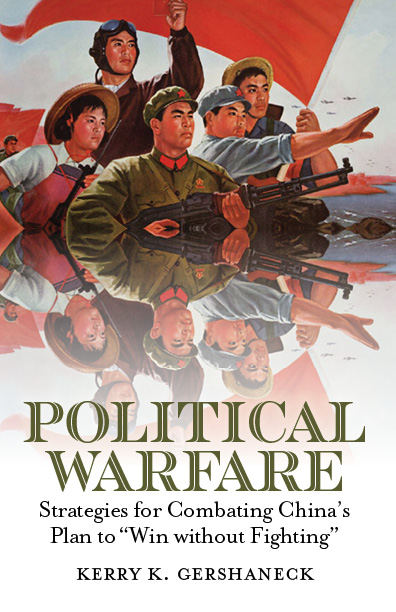 Political Warfare
Political Warfare
Strategies for Combating China's Plan to "Win without Fighting"
By Kerry K. Gershaneck
Political Warfare provides a well-researched and wide-ranging overview of the nature of the People's Republic of China (PRC) threat and the political warfare strategies, doctrines, and operational practices used by the Chinese Communist Party (CCP). The author offers detailed and illuminating case studies of PRC political warfare operations designed to undermine Thailand, a U.S. treaty ally, and Taiwan, a close friend.
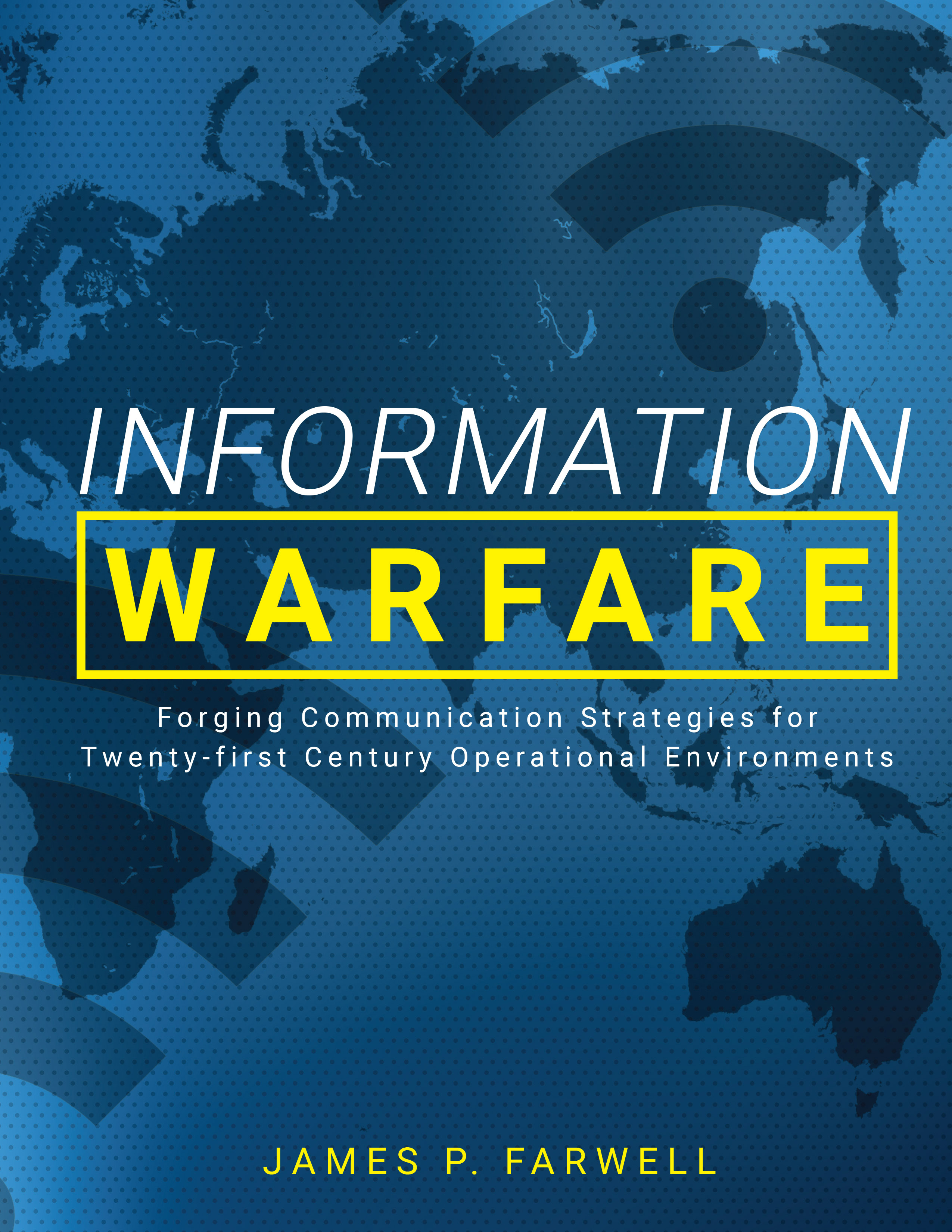 Information Warfare
Information Warfare
Forging Communication Strategies for the Twenty-first Century Operational Environments
By James P. Farwell
Great political and military leaders understand that communication strategies are key to victory in any conflict. Seizing the narrative can enable victory while failure to do so yields that advantage to the adversary. Gone are the days when competing armies confronted one another across battlefields. The information environment has made engagements and conflict both local and global all at once such that—as never before—information warfare is critical to victory. Understanding culture, history, local political dynamics, the interactions of different players, and the need to forge cohesive communication plans at the strategic, operational, and tactical levels matters more than ever to commanders and operators. In Information Warfare, James P. Farwell describes how commanders and operators must and can define winning outcomes and the strategies, operations, and tactics to achieve them. He lays out concrete, actionable steps to get results and places them in historical context, then provides a workbook to assist readers in devising communication strategies that produce victory in the sphere of information warfare.
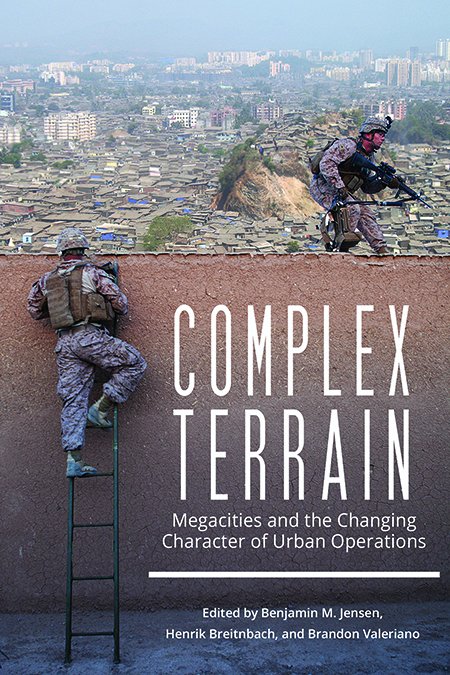 Complex Terrain
Complex Terrain
Megacities and the Changing Character of Urban Operations
Edited by Benjamin M. Jensen, Henrik Breitenbauch, and Brandon Valeriano
This edited volume, composed by military professionals in the Gray Scholars Program at Marine Corps University, describes the changing character of urban operations. The pattern of human settlement and interaction is changing and the future is urban. Because the majority of the world’s population lives within cities, the future of strategic competition and conflict reside there as well.
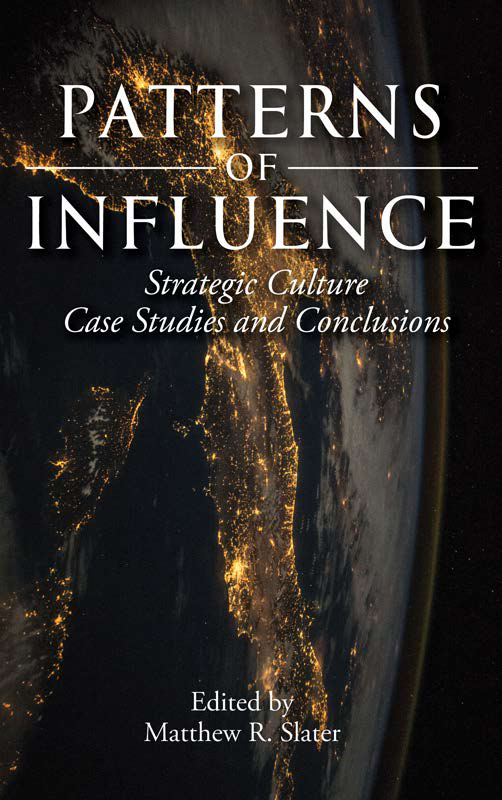 Patterns of Influence
Patterns of Influence
Strategic Culture Case Studies and Conclusions
Edited By Matthew R. Slater
Patterns of Influence is a timely book because of its applicability to the emerging strategic environment. The world is realigning into a multipolar power structure. Multipolar structures are typically complex, especially when considering the overlapping spheres of influence claimed by the competing powers in the international system. Patterns of Influence enables researchers to cope with the complexity of multipolar networks by promoting a strategic culture approach that provides a better understanding of internal state decision making. This book provides important commentary regarding the overall utility of strategic culture on states with limited federal governance, newer states that are still forming political processes and institutions, and smaller states that may become lost in the wake of regional powers. This study of strategic culture is written by scholars who are experienced working within the Department of Defense, including chapters on China, Afghanistan, Brazil, and Kosovo. Not only are the case studies geographically dispersed but also include large and small states, states with fragmented and cohesive political and social systems, as well as recently installed and more established governments. The eclectic group of case studies provide a broad basis to compare outcomes based on the strategic culture approach.
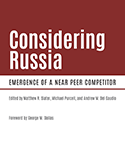 Considering Russia
Considering Russia
Emergence of a Near Peer Competitor
Edited by Matthew R. Slater, Michael Purcell, and Andrew M. Del Gaudio
This collection of papers helps us understand the implications for strategy and military planning behind Russia’s failure to integrate, as was maybe too naively expected, into the Euro-Atlantic and global economic and security architecture. To the contrary, Russia’s renewed assertiveness has created what might look like a new adversarial geopolitical context. This unexpected reality prompted our authors to analyze once again Russian military capability, tactics, and operational concepts, both through the contemporary filter of events in Georgia, Ukraine, and Syria, as well as the historical legacy of the Soviet Union. All of the authors, whether writing about the idea of hybrid warfare or the potential for conventional conflict in the Baltic region, uncover the continuities and novelties of the current situation. They also offer recommendations grounded in their professional experience with U.S. security policy as well as the Marine Corps.
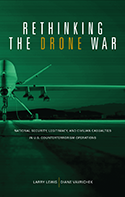 Rethinking the Drone War
Rethinking the Drone War
National Security, Legitimacy, and Civilian Casualties in U.S. Counterterrorism Operations
By Larry Lewis and Diane Vavrichek
This volume provides concrete recommendations for policy makers as well as military commanders, a number of which have, since the time of its writing, been incorporated into the recent U.S. policy guidelines related to civilian casualties. Although this volume focuses specifically on current counterterrorism practices, its analysis, frameworks, and conclusions can be applied in varying degrees to emerging technologies as well. These considerations can help a government ensure that its use of force is not only effective, but also responsible and consonant with its larger interests.
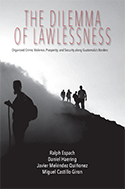
The Dilemma of Lawlessness
Organized Crime, Violence, Prosperity, and Security along Guatemala's Borders
By Ralph Espach, Daniel Haering, Javier Meléndez Quiñonez, and Miguel Castillo Giron
This study addresses this gap by examining the effects of illicit trafficking and criminal organizations within the three border municipalities of Guatemala: Sayaxché in the northern department of Petén, Gualán in the eastern department of Zacapa, and Malacatán in San Marcos in the west. These municipalities sit on important smuggling routes and are well-known by Guatemalan police, intelligence agencies, and local populations to be regional centers for organized crime.
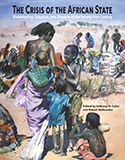 The Crisis of the African State
The Crisis of the African State
Globalism, Tribalism, and Jihadism in the Twenty-First Century
Edited by Anthony N. Celso and Robert Nalbandov
Crisis of the African State focuses on security problems facing the twenty-first-century African state. Through multiple essays, the authors explore both current and past security issues associated with tribal warfare and jihadist terrorism within a rapidly changing global context where state sovereignty and institutional capability is in decline. Historic and modern situations have coalesced to create unique security challenges for many African states.
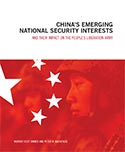 China's Emerging National Security Interests and Their Impact on the People's Liberation Army
China's Emerging National Security Interests and Their Impact on the People's Liberation Army
By Murray Scot Tanner and Peter W. MacKenzie
China's Emerging National Security Interests analyzes evolving perceptions by China’s national security community of Chinese national security interests and the potential threats to those interests. The authors examine the challenges that China’s emerging security concerns are creating for the PLA, and how these challenges are shaping its roles, missions, and activities.
 Confronting Security Challenges on the Korean Peninsula
Confronting Security Challenges on the Korean Peninsula
Edited by Bruce E. Bechtol Jr.
This volume and its authors have given us several important theoretical frameworks, new concepts, and diverse perspectives regarding the security challenges that Washington and its allies now confront on the Korean Peninsula. Through their research and writing, our distinguished scholars, military officers, diplomats, and practitioners have made valuable contributions to the scholarship relating to the security and the stability of the Korean Peninsula, and the threats and challenges that are imminent for the future.